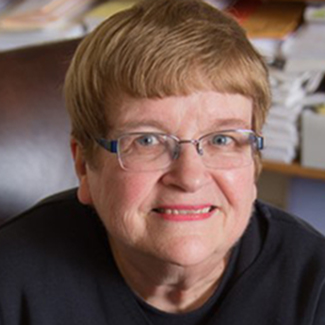Margaret Hermann
Professor Emerita, Political Science Department
Gerald B. and Daphna Cramer Professor of Global Affairs
Senior Research Associate, Mapping Global Insecurity
Senior Research Associate, Sovereignty, Order and Conflict Working Group
Senior Research Associate, Program for the Advancement of Research on Conflict and Collaboration
Highest degree earned
Bio
Margaret (Peg) Hermann is professor of political science, Gerald B. and Daphna Cramer Professor of Global Affairs and director of the Daniel Patrick Moynihan Institute of Global Affairs at the Maxwell School. Hermann has worked to develop techniques for assessing the leadership styles of heads of government at a distance and has such data on over 300 leaders. She is currently involved in exploring the effects of different types of leaders and decision processes on the management of crises that cross borders and boundaries as well as lead governments to experience crises. Her leadership style measures have also been applied to leaders of terrorist organizations, transnational NGOs and international organizations as well as senior level executives.
Hermann has been president of the International Society of Political Psychology and the International Studies Association as well as editor of Political Psychology and the International Studies Review. She developed the Summer Institute in Political Psychology and was its director for nine years. She has received an honorary doctorate from DePauw University and in 2017 was awarded the William Wasserstrom Prize for Graduate Teaching.
Among her books are "Describing Foreign Policy Behavior;" "Political Psychology: Issues and Problems;" and "Leaders, Groups, and Coalitions: Understanding the People and Processes in Foreign Policymaking." Her journal articles and book chapters include "Using Content Analysis to Study Public Figures;" "Transboundary Crises through the Eyes of Policymakers;" "The Experiment and Foreign Policy Decision Making;" "Leadership, Terrorism, and the Use of Violence;" "Political Psychology and the Study of Political Leadership;" and "Leadership and Behavior in Humanitarian and Development Transnational Non-Governmental Organizations."
